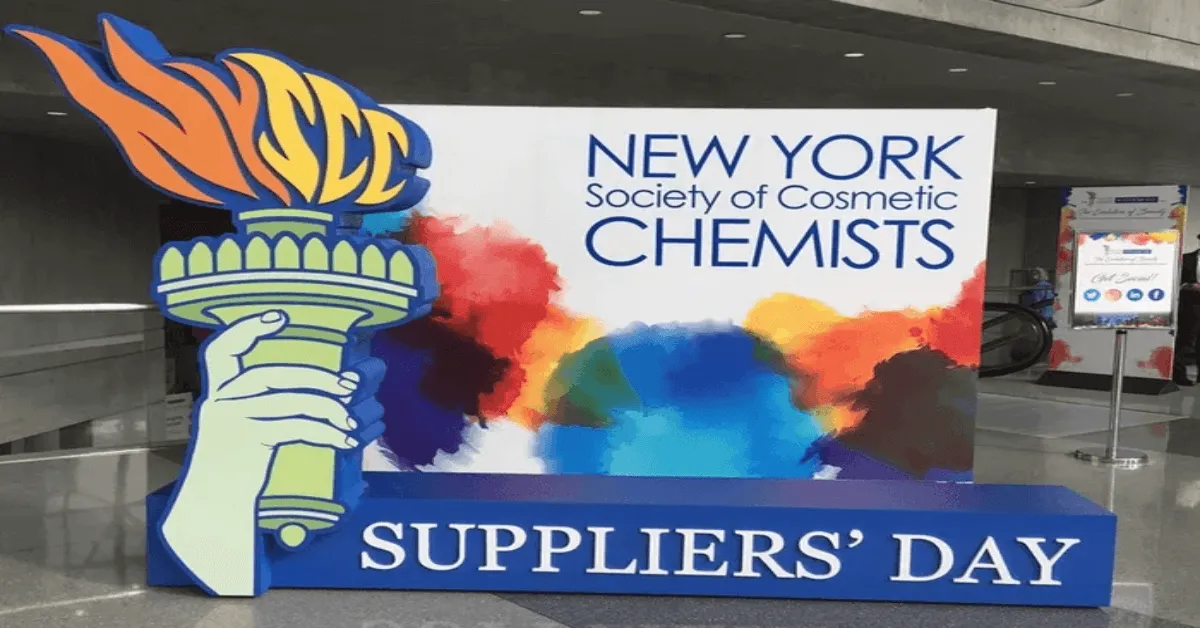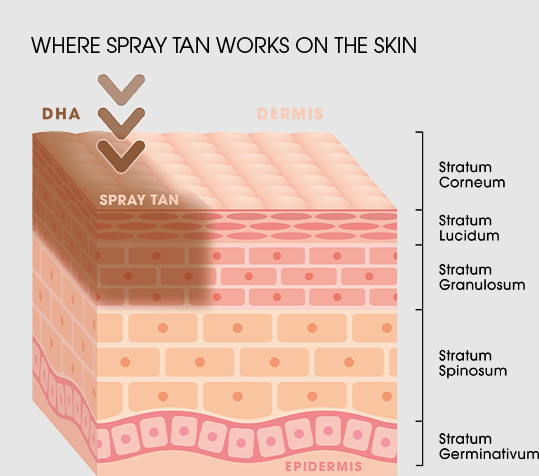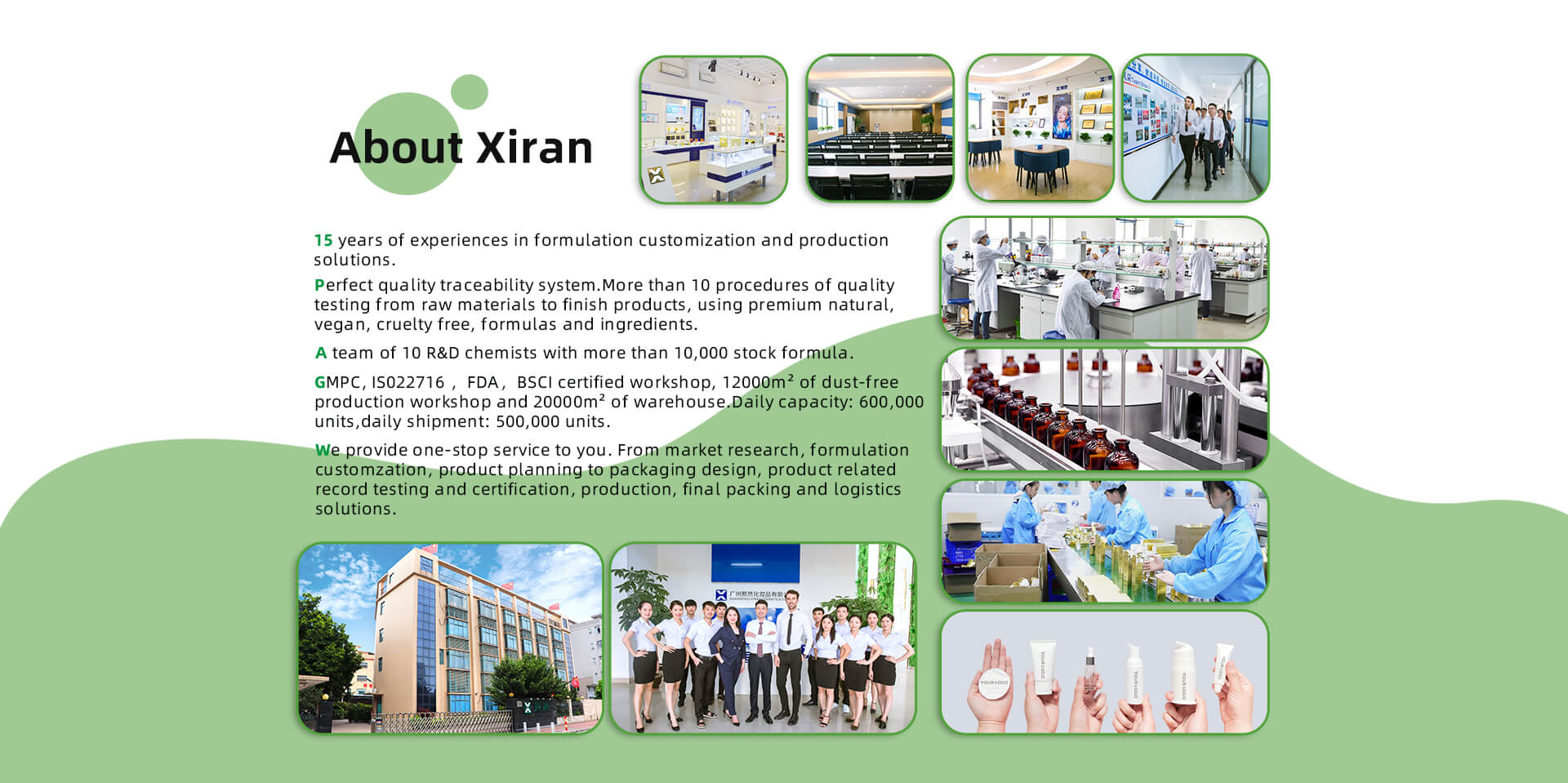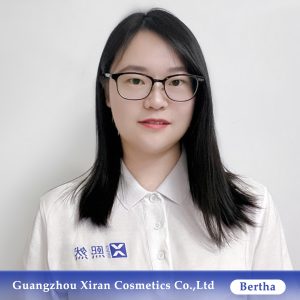
New York society or cosmetic chemists suppliers' Day, also known as NYSCC Suppliers' Day, is an annual event held by the New York Society of Cosmetic Chemists (NYSCC). It is the largest gathering of cosmetic chemists and suppliers in the United States. The event is held in New York City and attracts thousands of attendees from around the world.

NYSCC Suppliers' Day provides a chance for participants to stay up-to-date with the latest industry trends, connect with colleagues, and explore novel products and services. The event comprises a range of informative sessions, workshops, and seminars, covering subjects like formulation, product development, regulatory compliance, and marketing. In addition, attendees get the opportunity to interact with suppliers and manufacturers to address their requirements and identify remedies for their predicaments. What surprises will NYSCC Suppliers' Day bring us in 2023? What will the conference tell us about the latest industry trends? Let's explore together.
NYSCC Vendor Day 2023 will be held April 25-27 at the Jacob K. Javits Convention Center in New York City. This year's event will feature a variety of educational sessions, seminars and workshops on a wide variety of topics. Participants will also have the opportunity to meet with suppliers and manufacturers to discuss their needs and find solutions to the challenges they face. Attendees can learn about new products and services from leading vendors at the event, and they also have the opportunity to learn about the latest industry information from leading experts in the field. Participants can participate in a variety of activities, such as educational sessions on formulations, product development, regulatory compliance and marketing, workshops on sustainability, green chemistry and consumer trends, and panel discussions on product safety and efficacy testing. In addition, information presentation modes and interactive activities are also very attractive. Information presentation modes include industry publications, research reports, white papers, case studies, webinars, podcasts, videos, etc. Interactive formats include panel discussions, roundtable discussions and product demonstrations. The event attracted more than 7,800 live and 300 virtual attendees pre-registered to attend, and many companies reported strong booth traffic compared to last year, even though attendees were scattered across additional exhibit space. A variety of industry trends and concepts are reflected in this conference.


People are paying more attention to deeper skin health issues. For tanning products, for example, they are looking at self-tanning products based on DHA, a colorless sugar that reacts with amino acids in the skin's top layer to produce a brown color similar to a natural tan. Self-tanning with DHA is an alternative to UV exposure, which is harmful to the skin. Rather than exposing the skin to the sun or the damaging effects of tanning beds, individuals can achieve a tan without the risks associated with UV radiation by using dha based self-tanning products. For the improvement of skin luster, people are more inclined to improve the skin's natural luster rather than simply brightening. Therefore, antioxidant products developed using microbiome components will become a trend in the future.
This activity also brings up many ideas of cosmetic raw materials replacement, such as D5 to replace D4, Natural bakuchiol alternative to retinol, and bio-surfactant replacement of existing surfactants in the market. The microbiota, especially active probiotics, will be used more widely. These ideas need to be confirmed by more experiments and consumer experience feedback. Chemists explain why they use natural buckwheat phenol instead of retinol: Natural buckwheat phenol is a plant-derived compound that has been shown to offer several benefits for the skin. It is an antioxidant and has anti-inflammatory properties, which can help to protect the skin from damage caused by free radicals and reduce inflammation that can contribute to aging and other skin problems. Additionally, natural buckwheat phenol has been found to stimulate collagen production, which can help to improve the texture and firmness of the skin. Retinol is a synthetic form of vitamin A that is often used in skincare products due to its ability to boost collagen production and reduce the appearance of fine lines and wrinkles. However, it can also cause skin irritation and sensitivity, particularly in people with sensitive skin. Using natural buckwheat phenol instead of retinol in skincare products can provide similar benefits without the potential risks of skin irritation and sensitivity. Additionally, using plant-derived ingredients in skincare products is often perceived as a more natural and sustainable approach, which may appeal to consumers who prefer products with fewer synthetic ingredients.

Nowadays, many chemists and cosmetic product suppliers begin to pay attention to the influence of product ingredients, fragrance and other aspects of use experience on consumer emotion, and seek the assistance of neuroscientists and psychologists in product use testing. For example, testing the electrical response of products and ingredients, testing the stress relieving ingredients, testing the stress relieving effect of special product construction similar to massage skin lotion beads, etc. More and more consumers are paying attention to the emotional experience in cosmetics because they are looking for products that not only make them look good, but also make them feel good. Cosmetics can have a significant impact on a person's emotional well-being, and many consumers are becoming increasingly aware of this connection. For example, a person might choose a certain fragrance or texture of a product because it makes them feel happy or relaxed, or they may be drawn to products that have packaging or marketing that conveys a positive message or emotion. Consumers are also looking for brands that align with their values and beliefs, and that offer products that are more than just functional. They want to connect with brands that understand their needs and emotions and provide products that enhance their overall well-being. This emotional connection can lead to increased loyalty and advocacy for a brand, which is becoming increasingly important in today's competitive market.

Cosmetic products can be created by adjusting the amount of emulsifier and water to create light, medium and heavy texture formulas. Different texture formula by different countries and regions of consumer groups welcome. The brand determines the target market and population, according to these to do a more accurate market research, from how to deploy the more popular texture in the target market as the main brand product, will be conducive to the development of the brand and stand out in the competition. For example, sunscreens that are not whitening or powdery on the existing international market will become more popular. Cosmetics brands pay special attention to texture and sensory features when undertaking product development, as they play a crucial role in determining consumers' overall experience of a product. The texture and sensory aspects of cosmetics can greatly influence consumers' perceptions of their effectiveness, quality, and value. The texture of a cosmetic product affects how it feels on the skin, how it diffuses and absorbs, and how it interacts with other products. Brands often strive to create textures that are easy to use, lightweight, smooth and comfortable. The texture of a product can also affect its efficacy, as it affects the intended benefit of the product on the skin. For sensory features, such as fragrance, color and packaging, can also play an important role in consumers' perception of products. The smell of a product can evoke certain emotions and create a sense of luxury or indulgence. Color can also be used to convey a certain mood or emotion and contribute to the overall aesthetic appeal of a product. Packaging can also influence consumers' perceptions of a product, as it can convey a brand's values and personality and enhance the perceived quality of a product. By paying special attention to texture and sensory features when conducting product development, cosmetic brands can create products that not only deliver the desired results, but also provide a pleasant and satisfying experience for consumers. This increases customer satisfaction, loyalty and advocacy, which are critical to success in the highly competitive cosmetics market.

When you want to start a related personal care brand business, you can choose our factory. We are Guangzhou Xiran Cosmetics CO.,Ltd. We are manufacturer. We provide customized OEM/ODM/OBM services for skin care, body care, baby care, hair care and maternity care products in China. We have 15 years of experience in product customization and market research. Our customers are all over the world. Our professional laboratory team, professional design team and sales team, committed to provide you with a series of personalized brand customization services. At the same time, we can also provide you with a wealth of professional frontier consulting, so that you in the fierce international market brand competition one step faster, stand out.


